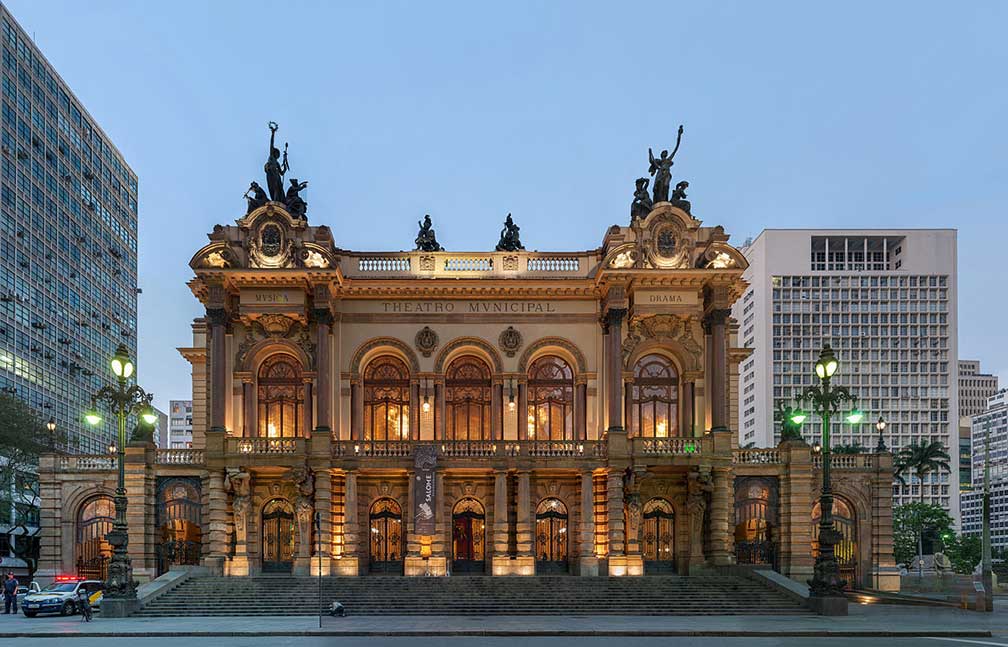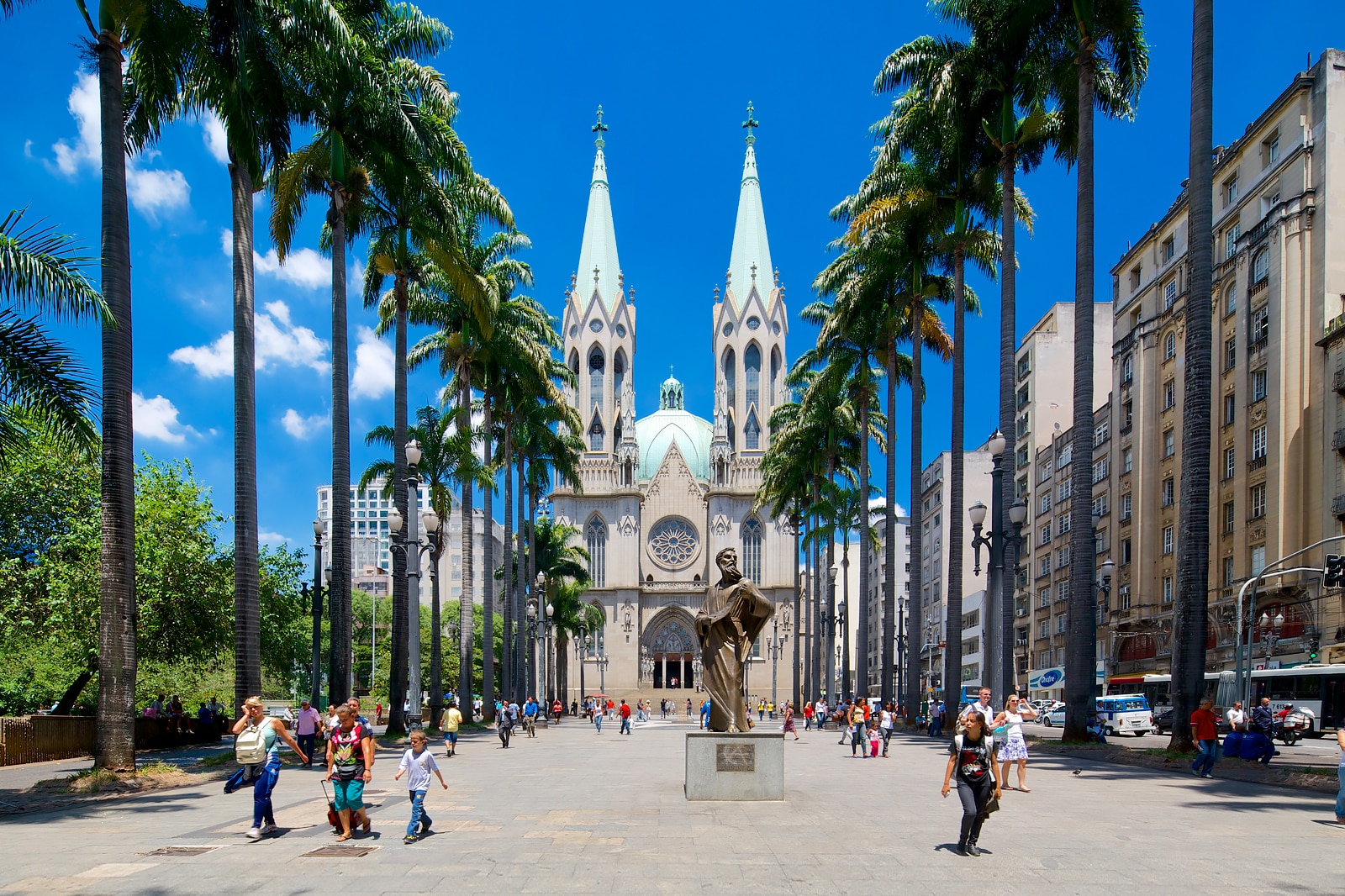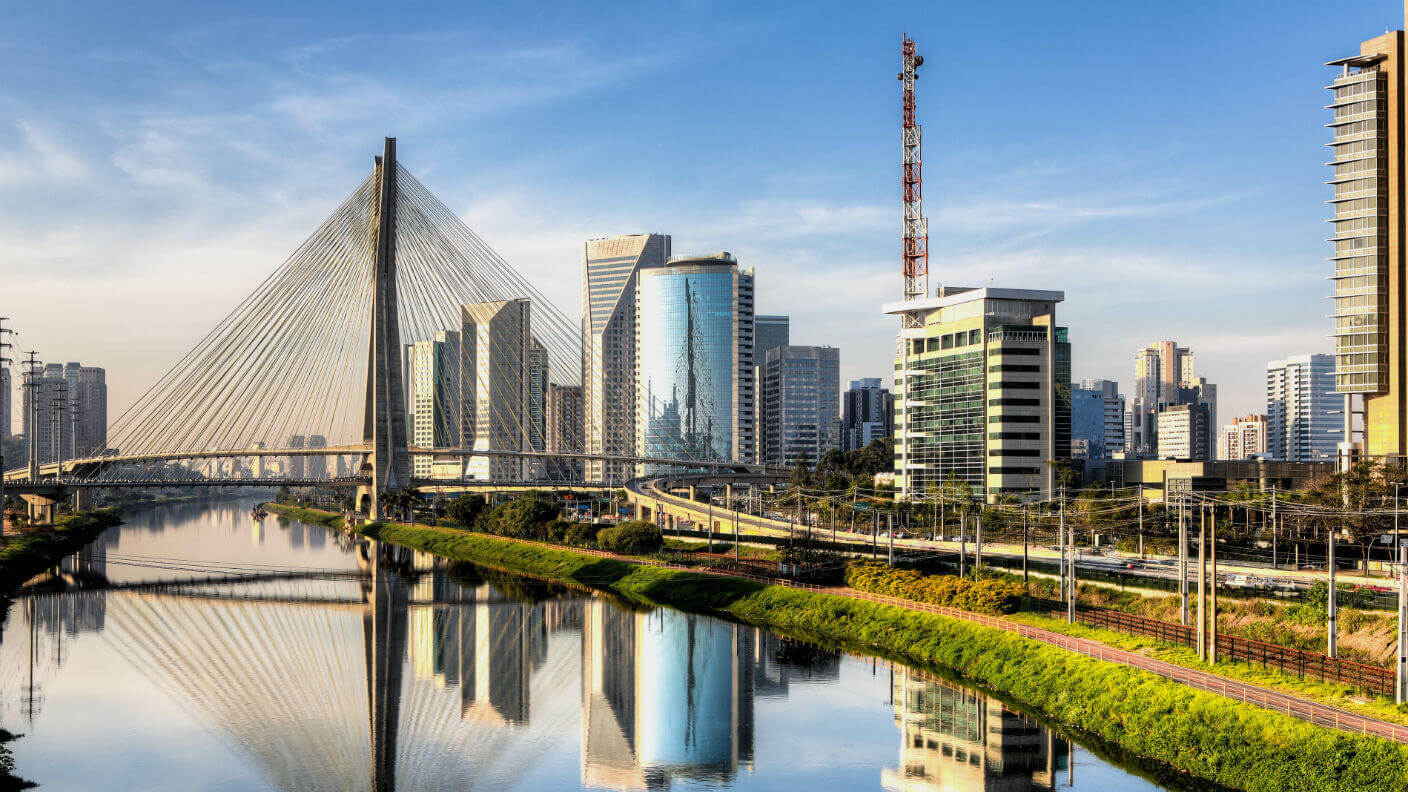Sao Paulo: A Vibrant Metropolis

Sao Paulo, Brazil’s largest city, is a captivating metropolis that pulsates with life, culture, and innovation. From its humble beginnings as a small village in the 16th century, Sao Paulo has transformed into a global powerhouse, a testament to its resilience, ambition, and dynamism.
History of Sao Paulo
Sao Paulo’s history is intricately woven with the story of Brazil itself. Its origins can be traced back to 1554 when Jesuit priests established a small settlement named “Piratininga.” The city’s name was later changed to “Sao Paulo de Piratininga” in honor of Saint Paul, the patron saint of the city. During the colonial era, Sao Paulo played a significant role in the gold rush and the coffee boom, becoming a major economic center.
- The Coffee Boom (19th Century): The cultivation of coffee transformed Sao Paulo’s economy and landscape. The city became the world’s leading coffee producer, attracting immigrants from Europe and Asia who sought fortune in the burgeoning coffee industry. The influx of immigrants contributed significantly to the city’s cultural diversity and cosmopolitan character.
- Industrial Revolution (Early 20th Century): As the coffee industry began to decline, Sao Paulo transitioned into a major industrial center. The city’s strategic location, abundant resources, and skilled workforce attracted numerous industries, leading to rapid economic growth and urbanization.
- Modernization and Growth (Mid-20th Century): After World War II, Sao Paulo experienced a period of rapid modernization and expansion. The city’s infrastructure was significantly upgraded, and new skyscrapers and modern buildings began to dot the skyline. This era saw the emergence of a vibrant cultural scene, with the city becoming a hub for art, music, and literature.
Cultural Influences, Sao paulo brazil
Sao Paulo’s cultural landscape is a rich tapestry woven from diverse threads, reflecting the city’s history as a melting pot of cultures. The city’s unique identity is shaped by the contributions of its diverse population, which includes people of European, African, Asian, and indigenous backgrounds.
- Immigration: Sao Paulo’s history is closely tied to immigration, which has played a pivotal role in shaping its cultural identity. The city’s diverse population, with roots in Italy, Portugal, Japan, Lebanon, and other countries, has enriched its culinary scene, music, art, and language.
- Art and Culture: Sao Paulo is a renowned center for art and culture. The city boasts numerous museums, theaters, and art galleries that showcase the works of both local and international artists. The “Bienal de São Paulo,” a prestigious international art exhibition held every two years, is a testament to the city’s vibrant artistic scene.
- Music and Literature: Sao Paulo is home to a thriving music scene, with a wide range of genres, including samba, bossa nova, rock, and electronic music. The city has also produced some of Brazil’s most celebrated writers, such as Paulo Coelho and Machado de Assis.
Iconic Landmarks and Architecture
Sao Paulo’s skyline is a mesmerizing spectacle, a blend of modern and historical architecture that reflects the city’s dynamic growth and evolution.
- The Paulista Avenue: This iconic avenue is a symbol of Sao Paulo’s dynamism and modernity. It is lined with towering skyscrapers, upscale shops, restaurants, and cultural institutions. The avenue is a vibrant hub of economic activity and a popular destination for both locals and tourists.
- The Ibirapuera Park: This sprawling green space is a sanctuary in the heart of the city. Designed by the renowned Brazilian architect Oscar Niemeyer, the park features a variety of attractions, including museums, art galleries, and a botanical garden.
- The Municipal Theater: This architectural masterpiece is a testament to Sao Paulo’s rich cultural heritage. Built in the early 20th century, the theater features a stunning neoclassical facade and an opulent interior, making it one of the most beautiful and iconic landmarks in the city.
- The Pinacoteca de São Paulo: This art museum is housed in a beautifully restored 19th-century building. It features a vast collection of Brazilian art, showcasing the evolution of artistic expression in the country.
Neighborhoods of Sao Paulo
Sao Paulo is a city of diverse neighborhoods, each with its own unique character, attractions, and ambiance.
| Neighborhood | Character | Attractions |
|---|---|---|
| Vila Madalena | Bohemian and artistic | Art galleries, live music venues, trendy restaurants and bars |
| Pinheiros | Trendy and cosmopolitan | Upscale boutiques, restaurants, bars, and cultural venues |
| Liberdade | Historic Japanese neighborhood | Japanese restaurants, shops, temples, and cultural centers |
| Ibirapuera | Residential and affluent | Ibirapuera Park, museums, art galleries, and cultural institutions |
| Moema | Sophisticated and upscale | Luxury boutiques, restaurants, bars, and nightlife |
Economic Powerhouse of Brazil: Sao Paulo Brazil

Sao Paulo, Brazil’s largest city, is not only a vibrant metropolis but also the economic powerhouse of the country. Its diverse industries and thriving business environment have propelled Brazil to the forefront of the Latin American economy.
Key Industries and Sectors
Sao Paulo’s economy is driven by a wide range of industries, contributing significantly to Brazil’s GDP.
- Financial Services: Sao Paulo is home to Brazil’s largest stock exchange, B3, and numerous banks, investment firms, and financial institutions. The city’s financial sector plays a crucial role in facilitating investment and driving economic growth.
- Manufacturing: Sao Paulo is a major manufacturing hub, producing a wide range of goods, including automobiles, electronics, chemicals, and textiles. The city’s manufacturing sector is supported by a robust supply chain and skilled workforce.
- Commerce and Retail: Sao Paulo boasts a thriving retail sector, with numerous shopping malls, department stores, and independent boutiques. The city is a major consumer market, attracting both local and international businesses.
- Technology and Innovation: Sao Paulo is emerging as a technology hub, with a growing number of startups, software developers, and tech companies. The city’s universities and research institutions are fostering innovation and attracting talent.
- Tourism: Sao Paulo is a popular tourist destination, attracting visitors from all over the world. The city’s cultural attractions, museums, and vibrant nightlife contribute significantly to its tourism industry.
Technology and Innovation
Technology and innovation are playing an increasingly important role in shaping Sao Paulo’s economic landscape. The city has become a hub for startups and entrepreneurs, particularly in the areas of fintech, e-commerce, and artificial intelligence.
- Fintech: Sao Paulo is home to a growing number of fintech companies, offering innovative financial services, such as mobile payments, digital banking, and crowdfunding.
- E-commerce: The city is a major e-commerce hub, with several large online retailers and a growing number of startups disrupting traditional retail models.
- Artificial Intelligence: Sao Paulo is attracting investments in artificial intelligence research and development, with several companies developing AI-powered solutions for various industries.
Challenges and Opportunities
Despite its economic strength, Sao Paulo faces challenges, including high levels of inequality, traffic congestion, and environmental pollution. However, these challenges also present opportunities for innovation and sustainable development.
- Addressing Inequality: Sao Paulo’s government and businesses are working to address inequality by investing in education, healthcare, and social programs.
- Improving Infrastructure: The city is investing in public transportation, renewable energy, and other infrastructure projects to improve its livability and reduce its environmental impact.
- Promoting Sustainability: Sao Paulo is embracing sustainable practices in its businesses and industries, aiming to reduce carbon emissions and promote environmental responsibility.
Successful Businesses and Entrepreneurs
Sao Paulo has produced many successful businesses and entrepreneurs who have contributed to the city’s economic growth.
- Ambev: A leading beverage company, Ambev is a major contributor to Sao Paulo’s economy, employing thousands of people and generating significant revenue.
- Itaú Unibanco: One of Brazil’s largest banks, Itaú Unibanco is a major player in Sao Paulo’s financial sector, providing financial services to millions of customers.
- Nubank: A leading fintech company, Nubank has disrupted the Brazilian banking industry with its innovative digital banking platform.
A City of Contrasts

Sao Paulo, a sprawling metropolis, showcases a stark juxtaposition of wealth and poverty, modernity and tradition, opportunity and hardship. This intricate tapestry of contrasts shapes the city’s identity, making it a fascinating and complex urban landscape.
Social and Economic Disparities
Sao Paulo’s economic dynamism has attracted millions, creating a diverse population with varying levels of income and access to resources. However, this growth has also fueled significant social and economic disparities.
- Income Inequality: The Gini coefficient, a measure of income inequality, is high in Sao Paulo, indicating a wide gap between the richest and poorest residents. The city boasts some of Brazil’s wealthiest individuals, while millions struggle to make ends meet.
- Housing Disparities: The city’s housing market reflects these inequalities, with luxurious high-rises in affluent neighborhoods contrasting with overcrowded favelas (slums) on the outskirts. This disparity highlights the unequal distribution of resources and opportunities.
- Access to Services: Disparities in access to essential services, such as healthcare, education, and sanitation, further exacerbate social inequalities. While affluent areas enjoy high-quality services, marginalized communities often face limited access, impacting their well-being and opportunities.
Efforts to Address Social Issues
Recognizing the urgency of these challenges, Sao Paulo has implemented various initiatives to address poverty, inequality, and crime:
- Social Programs: The government has established social programs, such as Bolsa Família, to provide financial assistance to low-income families, aiming to alleviate poverty and improve access to basic necessities.
- Urban Renewal Projects: The city has undertaken urban renewal projects to improve infrastructure, housing conditions, and public spaces in marginalized areas, fostering community development and improving quality of life.
- Crime Prevention Initiatives: The city has implemented crime prevention initiatives, including community policing programs and social interventions, to address crime rates and create safer environments for residents.
Impact of Urbanization and Population Growth
Sao Paulo’s rapid urbanization and population growth have placed immense pressure on its infrastructure and quality of life.
- Infrastructure Strain: The city’s infrastructure, including transportation, water supply, and sanitation systems, struggles to keep pace with the growing population, leading to congestion, shortages, and environmental challenges.
- Environmental Impacts: Population growth and industrial activity have contributed to air and water pollution, impacting the health and well-being of residents.
- Housing Challenges: The demand for housing has outpaced supply, leading to high rents, overcrowding, and informal settlements, exacerbating housing disparities.
Sao paulo brazil – Sao Paulo, Brazil, is a bustling metropolis known for its vibrant culture and delicious cuisine. But while you’re enjoying the sights and sounds of this South American gem, you might also be wondering, who is moderating the next presidential debate ?
After all, politics is a global topic, and even in the heart of Sao Paulo, people are curious about the upcoming elections and who will be guiding the discussion. Whether you’re a political junkie or just interested in the current events shaping the world, it’s always good to be informed, even while enjoying a delicious Brazilian steak!
Sao Paulo, Brazil is a vibrant city with a rich history and a diverse population. While the city is known for its bustling streets and delicious cuisine, it’s also a place where people engage in lively discussions about important topics like the upcoming presidential election.
You can learn more about the historical and strategic significance of presidential debate time by checking out this link, which might give you some insight into how these events shape political landscapes. Back in Sao Paulo, the city’s energy and passion are sure to be on full display during the election season, making it an exciting place to be.
